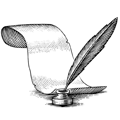 Integrated Disease Management for Vegetable Crops in Florida
Integrated Disease Management for Vegetable Crops in Florida
M. Paret, Nick Dufault, Tim Momol, Jim Marois, and Steve Olson ( August, 2012 )
Summary
A successful disease control program depends on a crop production system, which closely aligns with the goals of pest management. One must start with the selection of appropriate varieties, an irrigation system that minimizes leaf wetness, a fertilizer program that results in optimal plant growth, plant density and canopy management that afford optimal air circulation and pesticide coverage when needed, a transplant program that minimizes transplant shock, a clean seedling production program, effective pest monitoring by scouting regularly during the season, and, finally, a harvest and shipping procedure that maximizes shelf life and produce quality. Integrated Pest Management (IPM) as applied to vegetable diseases means using all the tactics available to the grower (cultural, biological, host-plant resistance, field scouting, chemical) that provide acceptable yield and quality at the least cost and are compatible with the tenets of environmental stewardship.
Details
| Organization | University of Florida Institute of Food and Agricultural Sciences |
| Publisher | University of Florida |
| Publication Date | August, 2012 |
| Publication Views | 1463 |
| Material Type | Written Material |